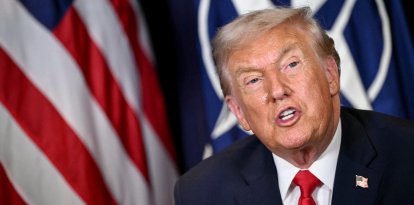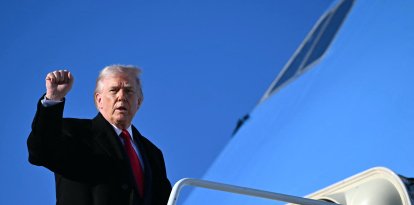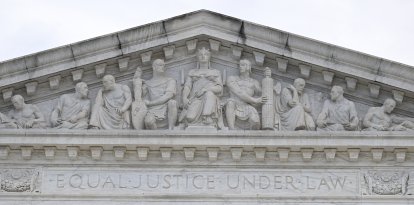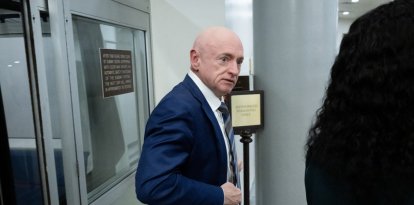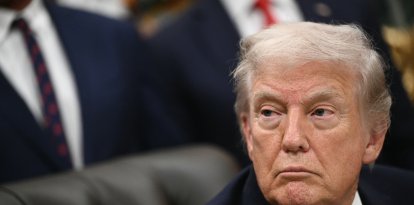Congressional investigation accuses State Department of funding 'Censorship Industrial Complex'
A congressional investigation reveals that the State Department, through its Global Engagement Center office, allegedly funded U.S. "fact-checking" firms using international intermediaries to influence the flow of information.

File image of demonstrators protesting against censorship
"Thou shalt not intervene in internal affairs." It is a fundamental maxim for the Department of State, a public institution in foreign policy affairs. However, an investigation by the House Small Business Committee gathered evidence that the State Department interfered in the free flow of ideas within the national territory.
Under the guise of serving its international mission, it allegedly funded private companies operating within the country's borders under the umbrella of "data verification." After analyzing more than 6,000 documents, such as grant applications, private company reports and tax reports, as well as more than 40 hours of interviews and hearings, committee members took aim at the work of one department office: the Global Engagement Center (GEC).
On paper, the GEC's function is to combat foreign propaganda and disinformation. It was created after 9/11, with the first impulse being to understand and diminish the influx of terrorist propaganda. In its sights are (or so they claim) adversaries such as Russia, China and Iran, as well as non-state organizations like terrorist groups.
"Intentionally or not, the GEC has had impacts on domestic business operations," Thursday's report asserts. But even if it wasn't apropos, it should have known better, the representatives say.
"The GEC should be aware of this, as they are required to do extensive vetting of each awardee in advance of administering funds and performed similar due diligence prior to promoting and testing each disinformation detection tool," the report reads.
International intermediaries, domestic targets
In one case, the GEC gave a grant to the British Institute for War and Peace Reporting, which in turn redirected at least some of the money to the Poynter Institute for Media Studies, a nonprofit organization headquartered in Florida.
The funds, which came out of taxpayers' pockets, were intended to get more media outlets to join the organization's International Fact-Checking Network's (IFCN) code of principles. A series of emails reveals that members of the department were involved in assessing the credibility of some media outlets, including U.S. newspapers. In one, an employee questions the credibility of the American outlet The Daily Caller.
Another organization that received money from the GEC was Park Capital Investment Group, registered in Virginia. It pocketed more than $6 million for "research, analytics and technology identifying and countering foreign state propaganda and disinformation."
Park allocated some of this money to companies developing various tools to "combat disinformation" to be tested by members of the department, and countries and international organizations. Some of these tools were manufactured by U.S. companies such as Factal, Presage Security, Inc. and Pendulum Intelligence Platform. However, nothing limited these U.S.-based companies from then selling their services outside the country. Moreover, the report notes, some users who tested them, such as technology companies, also have a presence in the United States.
Delivered in collaboration with institutions in other countries, there are other international grants that also allegedly ended up impacting the country. For example, Amazon and Disney made use of a beneficiary whose tool served to protect the reputation of companies, in addition to combating disinformation and "election threats."
Credibility rankings
Among the companies promoted by the GEC are some that produce media rankings. Their objective is to brand some media as unreliable in order to ultimately damage their reputation, reduce their circulation or hurt their monetization capabilities.
At this point, the research focuses on the GDI (Global Disinformation Index), which received international grants from the GEC and the NED (National Endowment for Democracy, a State Department program to strengthen foreign democracies). A December 2022 GDI report on U.S. media demonstrates a clear trend: while the list of the least risky media outlets includes NPR, The New York Times and BuzzFeed News; the list of the riskiest names The New York Post, The Daily Wire and The Federalist.
The department argued that the classification was created by the GDI after it was given the funds, so they were unaware of its monitoring of U.S. media. However, the representatives note, in their recent report, while requesting the public funds, the GDI made it clear that most of its work targeted English-language U.S. media:
"The GEC understood the nature of the GDI’s work and gave them taxpayer dollars to expand their capabilities anyway."















